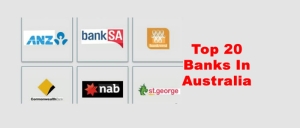
Freelancing refers to a self-employed and flexible work arrangement where individuals offer their skills and services on a temporary or project basis to clients or businesses. Freelancers, also known as independent contractors or gig workers, are not bound to long-term employment contracts with a single employer. Instead, they take on projects, assignments, or tasks for various clients on a project-by-project basis.
Key characteristics of freelancing include:
- Independence: Freelancers work for themselves, often choosing the projects they want to take on and setting their own schedules.
- Flexible Work Arrangements: Freelancers have the flexibility to determine when and where they work. This flexibility is one of the defining features of freelancing.
- Diverse Skills and Services: Freelancers offer a wide range of skills and services, including writing, graphic design, programming, marketing, consulting, and more.
- Project-Based Work: Freelancers are typically hired for specific projects or tasks, and their engagement ends upon the completion of the project or task.
- Client Relationships: Freelancers interact with clients who hire them for their expertise. Building positive client relationships is crucial for securing repeat business and referrals.
- Variable Income: Freelancers may experience variable income, depending on the volume and nature of the projects they undertake. Income is often project-based or hourly.
- Remote Work: Many freelancers work remotely, taking advantage of technology to collaborate with clients and complete tasks from anywhere with an internet connection.
- Online Platforms: Freelancers often use online platforms and marketplaces to connect with clients. Platforms like Upwork, Freelancer, Fiverr, and others facilitate the matching of freelancers with projects.
- Entrepreneurial Mindset: Freelancers need to manage their own businesses, including tasks such as marketing, invoicing, and managing finances. This requires an entrepreneurial mindset.
Common freelance roles include writers, designers, developers, consultants, marketers, and many other specialized professions. Freelancing can be a full-time career or a supplementary source of income, and it appeals to individuals seeking autonomy, flexibility, and the ability to work on diverse projects.
It's important to note that while freelancing provides flexibility and independence, it also comes with challenges such as managing a variable income, securing consistent work, and handling administrative tasks. Successful freelancers often develop a combination of technical skills, business acumen, and effective self-marketing strategies to thrive in the freelance economy.
Requirements to Become A Freelancer
Starting a freelancing career in Nigeria, or anywhere else, involves a series of steps to set up your online presence, find clients, and deliver quality work.
Here's a guide to help you get started with freelancing in Nigeria:
- Identify Your Skills:
Determine your skills and strengths. Freelancers often specialize in areas such as writing, graphic design, programming, digital marketing, or other creative and technical fields.
- Create an Online Presence:
Establish an online presence to showcase your skills and portfolio. This may include creating a professional website, setting up profiles on freelancing platforms, and creating a LinkedIn profile. Make sure to highlight your skills, experiences, and past projects.
- Choose a Niche:
Consider specializing in a specific niche within your field. Specialization can help you stand out and attract clients looking for expertise in a particular area.
- Build a Portfolio:
Create a portfolio showcasing your best work. Include detailed descriptions of each project, the challenges you faced, and the solutions you provided. This portfolio will be crucial in demonstrating your capabilities to potential clients.
- Set Your Rates:
Determine your pricing strategy. Research industry standards and factor in your experience, expertise, and the local market conditions in Nigeria. Be transparent about your rates on your profile or website.
- Create Accounts on Freelancing Platforms:
Join freelancing platforms where you can find clients and job opportunities. Popular platforms include Upwork, Freelancer, Fiverr, and Toptal. Create a compelling profile, clearly stating your skills, experience, and what makes you unique.
- Apply for Jobs:
Start applying for relevant jobs on freelancing platforms. Tailor your proposals to each job, demonstrating an understanding of the client's needs and explaining how your skills make you the right fit for the project.
- Network and Market Yourself:
Network with other freelancers and potential clients. Engage in online communities related to your niche, join social media groups, and attend local events. Word of mouth and referrals can be powerful in the freelancing world.
- Deliver High-Quality Work:
Consistently deliver high-quality work to build a positive reputation. Satisfied clients are more likely to leave positive reviews and recommend you to others.
- Manage Finances:
Keep track of your income and expenses. Consider setting up a dedicated business bank account. Be aware of tax obligations in Nigeria and ensure you comply with local regulations.
- Continuous Learning:
Stay updated on industry trends and continuously improve your skills. This will not only make you more competitive but also allow you to expand your service offerings.
- Provide Excellent Customer Service:
Communicate effectively with clients, be responsive, and ensure you understand their requirements. Building strong relationships with clients can lead to repeat business and positive referrals. Remember that freelancing success takes time and persistence. It's essential to be proactive in marketing yourself, delivering quality work, and adapting to the evolving needs of the market.
Types of freelancing Career
Freelancing encompasses a diverse range of skills and services, and freelancers can be found in various industries. Here are some common types of freelancing, each associated with specific skills and services:
- Writing and Content Creation:
Freelance writers create content for various purposes, including articles, blog posts, website copy, marketing materials, and more.
- Graphic Design:
Freelance graphic designers create visual elements for branding, marketing, websites, social media, and other platforms.
- Web Development and Design:
Freelance web developers and designers build and design websites, create web applications, and provide technical support.
- Programming and Software Development:
Freelance programmers and developers create software, mobile applications, and provide coding services for various platforms.
- Digital Marketing:
Freelance digital marketers offer services such as social media management, search engine optimization (SEO), content marketing, email marketing, and online advertising.
- Social Media Management:
Freelancers in social media management handle the creation, scheduling, and management of social media content for businesses or individuals.
- Virtual Assistance:
Virtual assistants provide administrative support services remotely, including tasks such as email management, scheduling, data entry, and customer support.
- Online Tutoring and Coaching:
Freelancers in this category offer tutoring or coaching services in various subjects, skills, or areas of expertise.
- Translation and Language Services:
Freelance translators and language professionals provide translation services for documents, websites, and other content.
- Photography and Videography:
Freelance photographers and videographers capture visual content for events, businesses, or creative projects.
- Consulting:
Freelance consultants offer expertise in specific industries or domains, providing strategic advice and solutions to clients.
- Voiceover and Audio Production:
Freelancers in this category provide voiceover services, audio editing, and production for various projects, including commercials, audiobooks, and podcasts.
- 3D Modeling and Animation:
Freelance 3D artists create three-dimensional models, animations, and visual effects for industries such as gaming, entertainment, and advertising.
- Data Entry and Research:
Freelancers specializing in data entry and research assist businesses in gathering and organizing information.
- E-commerce Services:
Freelancers support businesses with e-commerce-related tasks, including product listings, order processing, and customer service. These are just a few examples, and the world of freelancing is continually evolving. Freelancers often combine multiple skills, allowing them to offer a broader range of services to clients. The key is to identify your strengths, market your skills effectively, and provide high-quality services to build a successful freelance career.
Frequent asked question about how to start freelancing career
Certainly! Here are some frequently asked questions about starting a freelancing career:
- How do I start freelancing?
To start freelancing, identify your skills, create an online portfolio, join freelancing platforms, and actively apply for relevant jobs. Building a strong online presence is crucial.
- What skills are in demand for freelancers?
In-demand freelance skills include writing, graphic design, web development, programming, digital marketing, social media management, and content creation.
- Do I need a degree to freelance?
No, freelancers do not necessarily need a degree. Clients often prioritize skills and experience over formal education. A strong portfolio and relevant experience are key.
- How do I set my freelancing rates?
Set your rates based on factors like your skills, experience, market demand, and the complexity of the work. Research industry standards and adjust your rates accordingly.
- Should I specialize in a niche or offer a variety of services?
Specializing in a niche can make you stand out, but offering a variety of services can attract a broader range of clients. Consider your strengths and market demand.
- How do I find clients as a freelancer?
Finding clients involves creating a professional online presence, networking on social media, joining freelancing platforms, and actively applying for jobs. Word of mouth and referrals are also powerful.
- What freelancing platforms should I use?
Popular freelancing platforms include Upwork, Freelancer, Fiverr, Toptal, and others. Choose platforms based on your skills and the type of clients you want to attract.
- How do I create a portfolio?
Create a portfolio by showcasing your best work. Include detailed descriptions of each project, the skills utilized, and the impact of your work. Use a personal website or portfolio platforms to display your work.
- How do I handle taxes as a freelancer?
Keep track of your income and expenses, and be aware of tax obligations in your country. Consider consulting with a tax professional to ensure compliance.
- Is freelancing a stable income source?
Freelancing income can be variable, especially in the beginning. Building a consistent client base, delivering quality work, and marketing yourself effectively can contribute to a more stable income.
- How do I stand out as a freelancer?
Stand out by creating a unique personal brand, delivering exceptional work, building a strong online presence, and maintaining positive client relationships. Specializing in a niche can also help you stand out.
- How do I deal with difficult clients?
Communicate openly and professionally. Set clear expectations from the beginning, and if issues arise, address them calmly. If necessary, consider ending the collaboration professionally.
- Should I freelance full-time or part-time?
The decision to freelance full-time or part-time depends on your financial situation, goals, and preferences. Some freelancers start part-time and transition to full-time as they build their client base.
- How do I stay motivated as a freelancer?
Set clear goals, create a schedule, join freelancer communities for support, and celebrate your achievements. Staying motivated often involves finding a balance between work and personal life.
- Can I freelance while having a full-time job?
Yes, many freelancers start part-time while maintaining a full-time job. Be mindful of time management and ensure you can fulfill your freelance commitments without compromising your full-time job responsibilities.
Starting a freelancing career requires dedication, continuous learning, and effective self-promotion. As you navigate the freelancing world, adaptability and a proactive approach will contribute to your success.
Conclusion, embark on your freelancing journey today and unlock a world of possibilities. Sign up, showcase your skills, and connect with clients’ eager for your expertise. Seize control of your career, enjoy the flexibility, and turn your passion into a rewarding freelancing adventure. Your success begins now.







 Optimus Bank USSD Code - How To Use It
Optimus Bank USSD Code - How To Use It